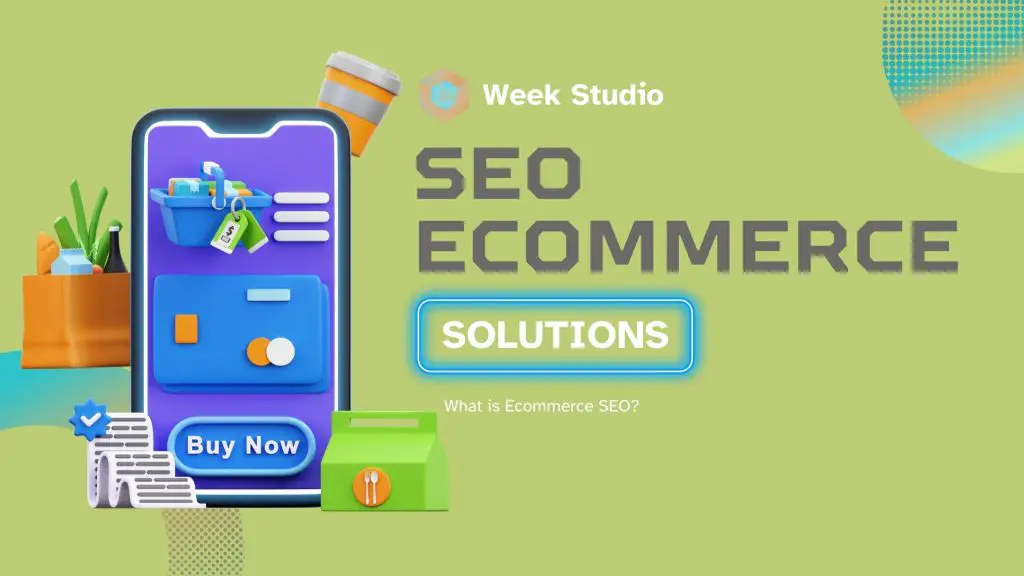In the sprawling realm of digital commerce, where virtual shelves are laden with an abundance of products, the art of being discovered by potential customers is a game that every online business must master. This is where Ecommerce SEO emerges as the guiding force, steering the trajectory of online stores towards visibility, traffic, and ultimately, conversions.
The digital marketplace is vast and competitive, making it crucial for online businesses not just to have an appealing storefront but also to be easily found amid the noise of the internet. Ecommerce SEO is the compass that directs businesses through the intricacies of search engine algorithms, helping them navigate the dynamic landscape of online visibility.
In this journey through Ecommerce SEO, we will unravel the significance of optimizing an online store for search engines, explore strategies to enhance product visibility, and delve into the various elements that contribute to a successful online retail presence. So, fasten your seatbelts as we embark on a virtual expedition through the world of Ecommerce SEO.
What Is E-Commerce In SEO?

E-commerce is short for electronic commerce, which is a term used to describe any type of business transaction that takes place over the internet. When it comes to SEO, e-commerce websites can be a little more challenging to rank than traditional websites. This is because there are a lot more factors to consider, such as product titles, descriptions, images, and the overall structure of the website.
However, with the right strategy and some patience, it is definitely possible to rank an e-commerce website in Google. In this article, we will discuss some of the key factors that you need to consider when optimizing an e-commerce website for SEO.
Product Titles
One of the most important factors when it comes to SEO is the title of your product. When people are searching for a product online, they will usually enter a keyword or phrase into a search engine. If the title of your product is not optimized for that keyword or phrase, you will not rank as high as you could. It is therefore important to make sure that your product titles are as keyword-rich as possible.
Product Descriptions
Another important factor when it comes to SEO is the product description. When people are searching for a product online, they will often read the product description to find out more about the product. If your product descriptions are not optimised for SEO, you will not rank as high as you could. It is therefore important to make sure that your product descriptions are as keyword-rich as possible.
URL Structure
One of the most important factors when it comes to SEO is the URL structure of your website. When people are searching for a product online, they will often enter a URL into a search engine. If the URL of your website is not optimized for that keyword or phrase, you will not rank as high as you could. It is therefore important to make sure that your URLs are as keyword-rich as possible.
How Much Is Ecommerce SEO?
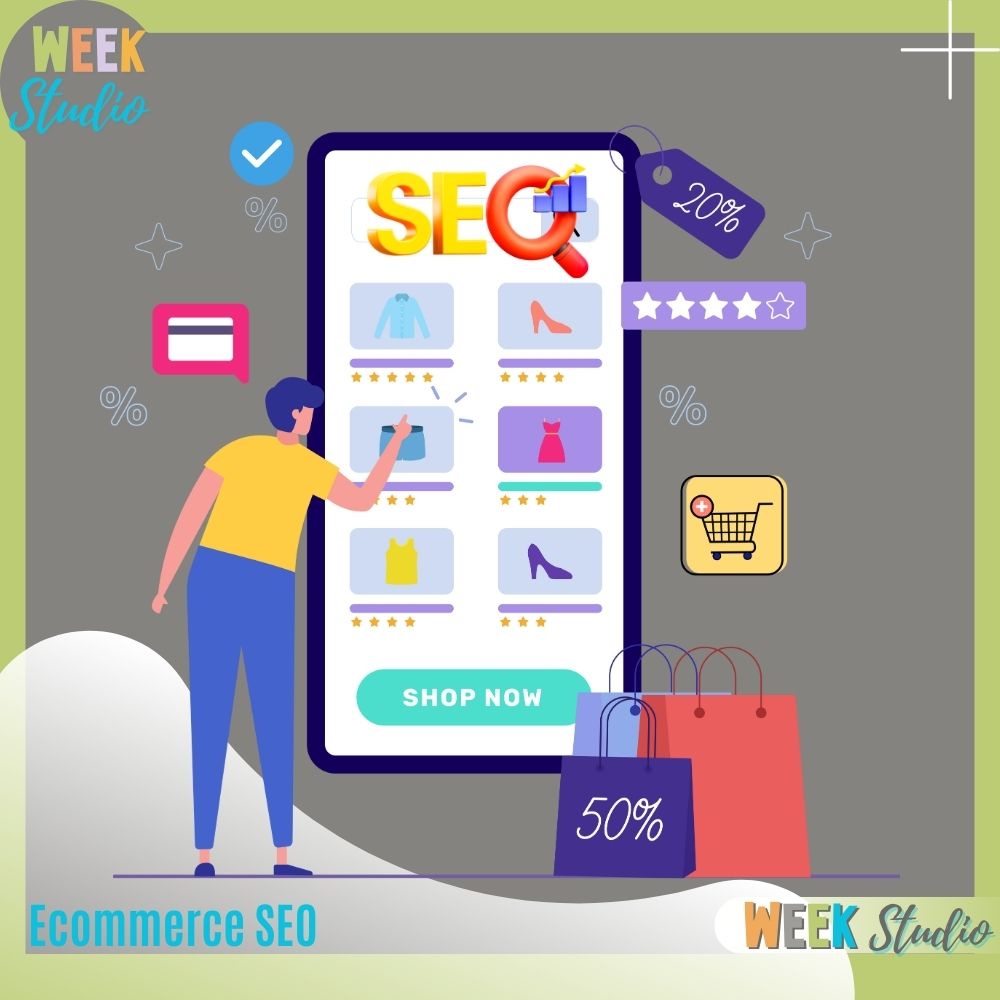
There is no easy answer to this question, as the amount of work required for ecommerce SEO depends on a variety of factors. However, some general guidelines can be provided. First and foremost, ecommerce SEO requires an understanding of how to optimize a website for the search engines. This includes optimizing the on-page elements such as titles, metatags, descriptions, and images, as well as developing an effective off-page SEO strategy.
In addition, ecommerce sites typically have a larger number of pages than traditional websites, which means more work is required to ensure each page is properly optimized. Furthermore, the products and categories on an ecommerce site need to be properly indexed and ranked by the search engines. All of this work can be time-consuming and requires a fair amount of experience and expertise. As a result, most ecommerce businesses choose to hire an experienced SEO agency to handle their SEO needs.
The cost of ecommerce SEO services can vary depending on the size and complexity of the website, the level of competition, and the extent of services required. However, as a general rule, SEO agencies typically charge between $500 and $5,000 per month. The best way to find an SEO agency that’s a good fit for your business is to ask other business owners for recommendations, read online reviews, and compare pricing. Once you’ve found a few agencies that you like, the next step is to contact them and ask for a proposal.
The proposal should include a detailed breakdown of the services the agency will provide, as well as the expected results. It’s also important to ask the agency to provide case studies or examples of previous work they’ve done.
How Do I Get SEO Results For Ecommerce?
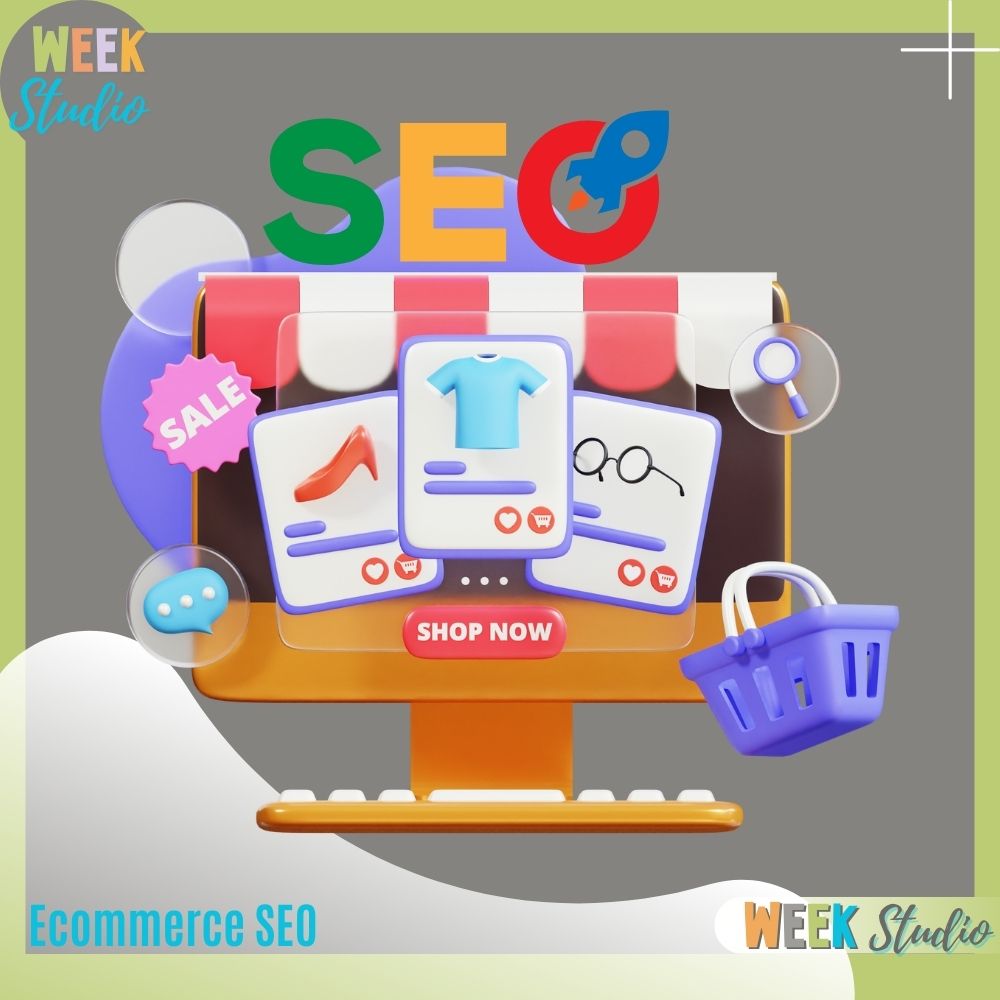
There is no one-size-fits-all answer to this question, as the approach that you take to SEO for your ecommerce site will be largely dependent on the products and services that you offer, as well as the competitive landscape in your industry. However, there are a few general tips that you can keep in mind when optimizing your ecommerce site for search engines.
- Make sure that your site is properly indexed: The first step in getting SEO results for your ecommerce site is making sure that your site is properly indexed by search engines. This means ensuring that your site’s robots.txt file is set up correctly, that your pages are properly tagged with the correct metatags, and that your site’s content is effectively optimized for keywords.
- Optimize your product pages: One of the most important aspects of SEO for ecommerce sites is optimizing your product pages for search engines. This means including keyword-rich titles, metatags, and descriptions, as well as optimizing your page content for relevant keywords.
- Optimize your site for speed: Another important factor in achieving good SEO results for your ecommerce site is optimizing your site for speed. This means reducing the size of your pages, using caching, and optimizing your images.
- Increase your site’s link popularity: One of the most important factors in achieving good SEO results is increasing your site’s link popularity. This means getting links from other high-quality sites.
- Use effective marketing techniques: Finally, the most important factor in achieving good SEO results for your ecommerce site is using effective marketing techniques. This means using effective techniques such as search engine optimization, pay-per-click advertising, and link building.
What Is Ecommerce SEO Description?
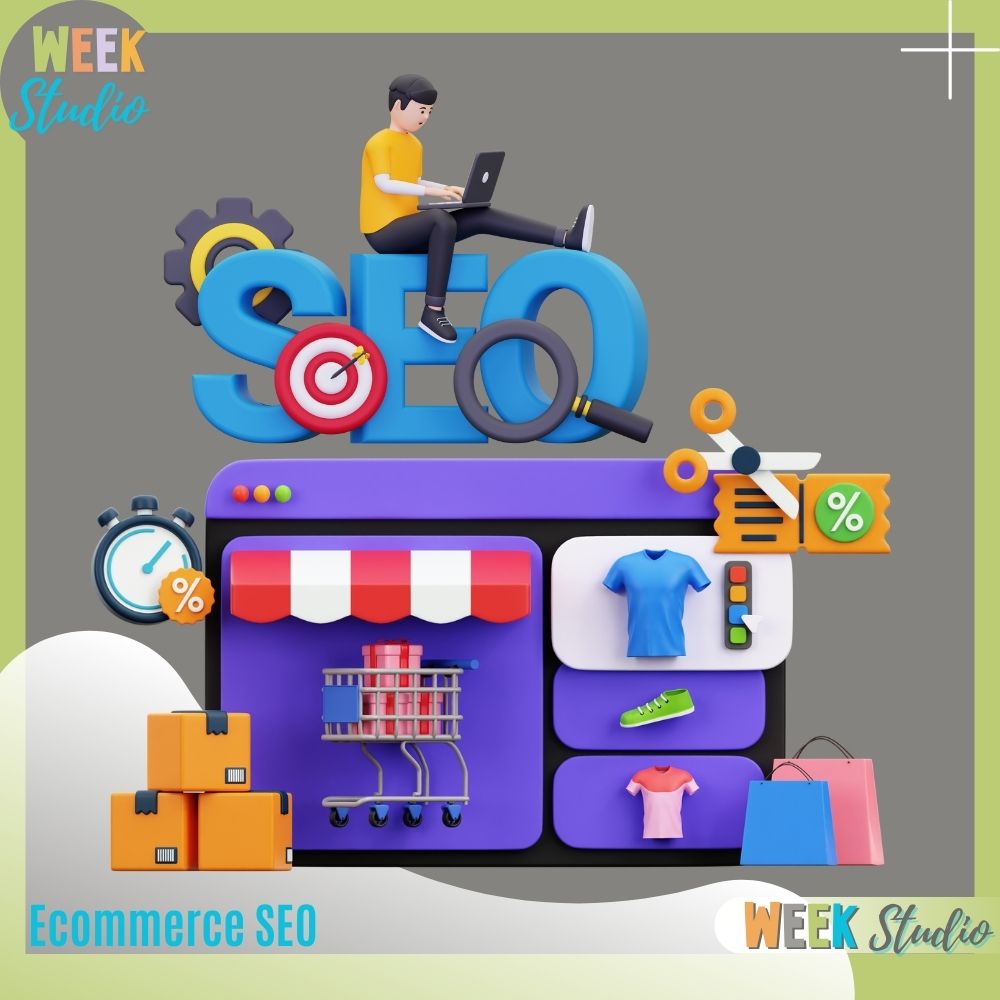
Ecommerce SEO is the practice of optimizing a website for the purpose of increasing the visibility of that website in search engine results pages (SERPs). This is typically done through the use of a variety of techniques, including the use of keywords and keyword phrases, on-page optimization, link building, and social media engagement.
The ultimate goal of ecommerce SEO is to improve the visibility of a website so that it can attract more visitors from the online space, resulting in increased sales and revenue. If you are running an online store, then you know that getting people to visit your website is only the first step. You also need to make sure that they can find your products and buy them! This is where ecommerce SEO comes in.
When people are looking for products that you sell, you want your website to be one of the first results that they see. There are a number of things that you can do to improve your website’s SEO, and many of these things are specific to ecommerce stores. For example, you can optimize your product pages for search engines, make sure that your website is mobile-friendly, and use keyword-rich titles and descriptions.
What Is The Difference Between SEO And Ecommerce SEO?
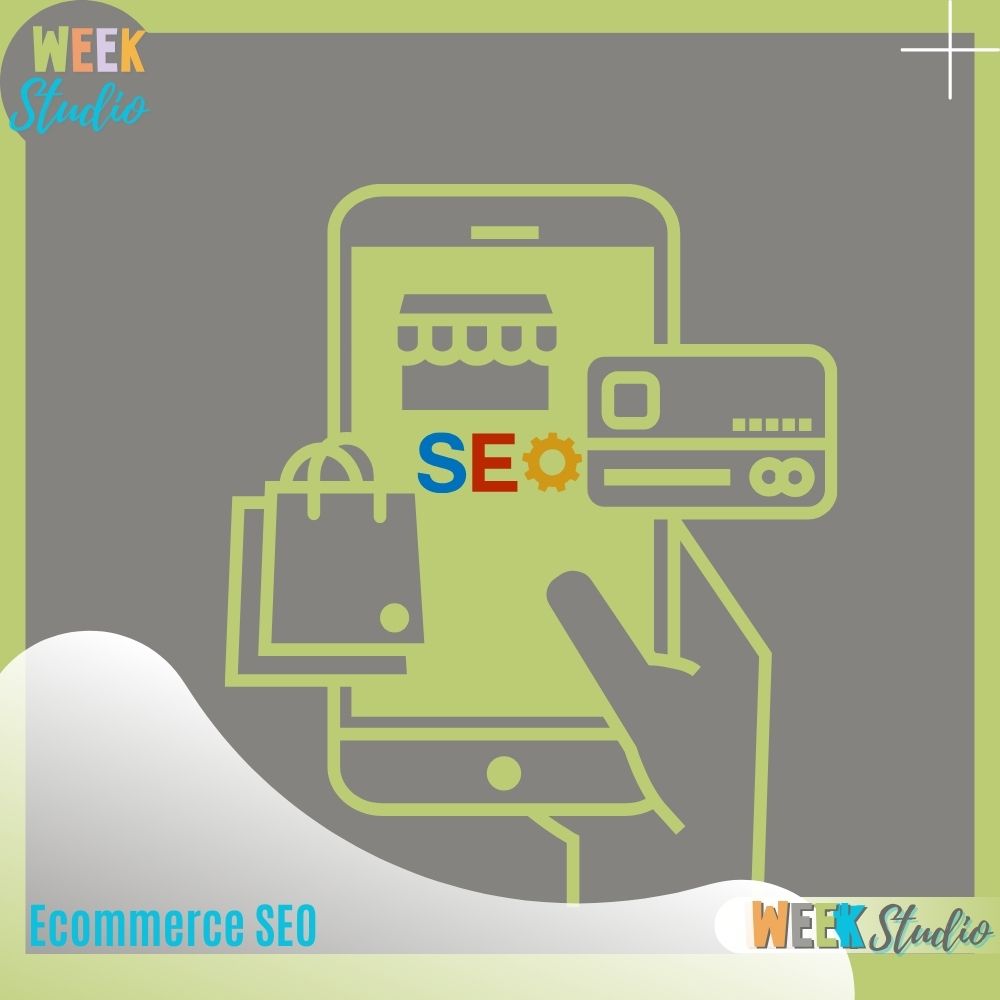
If you’re running an online store, you’re likely aware of the importance of search engine optimization (SEO) – after all, you want your products to be as visible as possible to potential customers, right? But what you may not know is that there’s a big difference between SEO for ecommerce stores and SEO for other types of websites. In this post, we’ll break down the key differences between ecommerce SEO and regular SEO, and explain how you can make sure your store is getting the most out of its SEO efforts.
Ecommerce SEO is the process of optimizing a website for the purpose of selling products and services online. This type of SEO is focused on increasing traffic to a website from search engines, and typically requires a different set of skills than traditional SEO.
This typically involves improving the website’s content, metadata, and backlinks. let’s see
- Ecommerce SEO typically requires more focus on product pages than traditional SEO.
- Ecommerce SEO requires a better understanding of how search engines work with regards to product and category pages.
- Ecommerce SEO often requires more paid search marketing.
- Traditional SEO can be more effective for driving traffic to a website’s
When it comes to SEO for ecommerce stores, the main focus is on optimizing your website’s product pages. This means making sure your product pages are as search engine-friendly as possible, with titles, descriptions, and keywords that accurately reflect what your products are and what people are searching for. You’ll also want to make sure your website is properly set up for ecommerce, with shopping cart and checkout pages that are easy for users to navigate.
Beyond optimizing your website, there are a few other things you can do to help your ecommerce store rank higher in search engine results pages (SERPs). One of the most important is to build high-quality backlinks to your website. This means getting other websites to link to your product pages, preferably from high-traffic, high-authority websites. You can also increase your website’s visibility in SERPs by using paid search advertising, such as Google AdWords.
If you’re looking to improve your ecommerce SEO, these are a few basic things to keep in mind. For more detailed information, please contact our team of SEO experts.
What Is The Best Tools For Ecommerce SEO?
When it comes to ecommerce SEO, there are a number of different tools that you can use in order to help you improve your ranking. In this post, we’re going to take a look at some of the best tools for ecommerce SEO and how you can use them to improve your ranking.
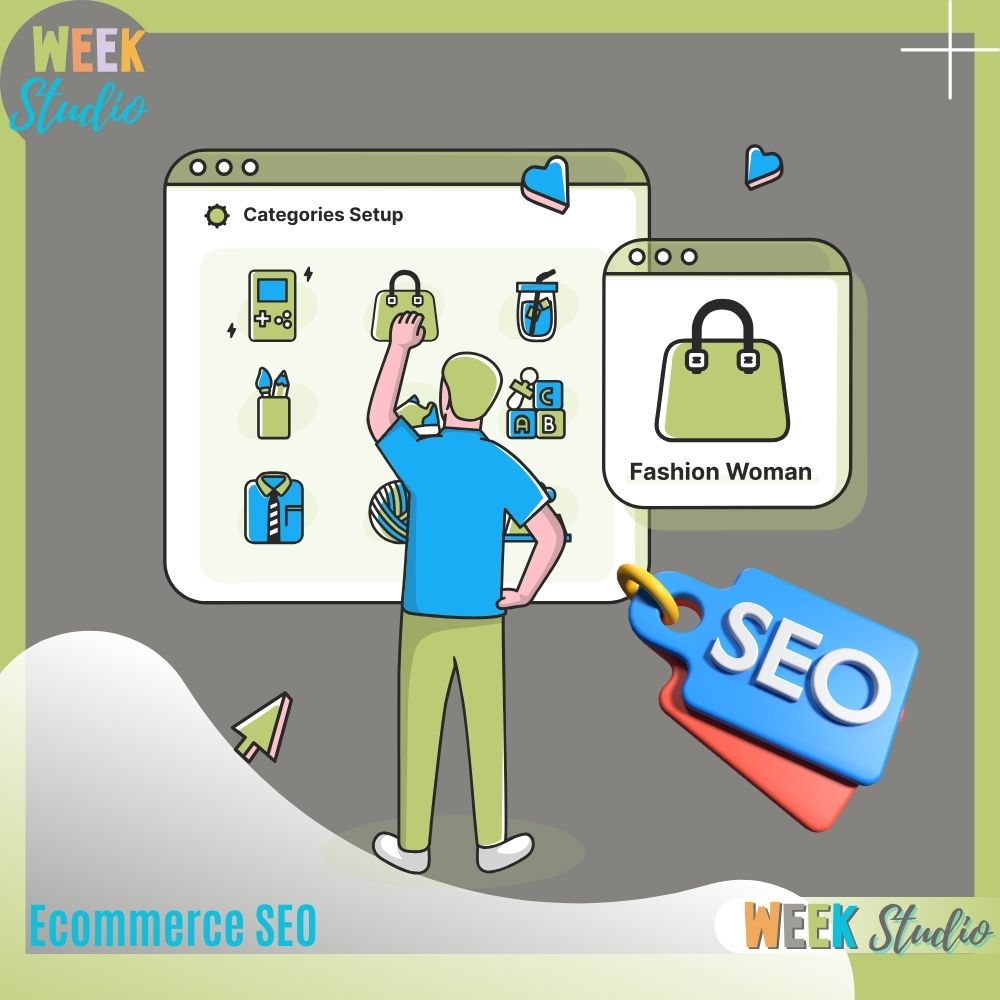
- Google Search Console: Google Search Console is one of the most important tools for ecommerce SEO. You can use Google Search Console to see which keywords your website is ranking for, how your website is performing in terms of click-through rate and impressions, and much more.
- Screaming Frog: Screaming Frog is a tool that allows you to crawl your website and analyse the data. You can use Screaming Frog to see which pages are getting the most organic traffic, which pages are ranking for which keywords, and much more.
- Majestic SEO: Majestic SEO is a tool that allows you to see how your website is performing in terms of backlinks. You can use Majestic SEO to see how many backlinks your website has, where those backlinks are coming from, and much more.
- Google Analytics: Google Analytics is a tool that allows you to see how your website is performing in terms of traffic. You can use Google Analytics to see how many people are visiting your website, where they are coming from, and much more.
- Ahrefs SEO Toolkit: Ahrefs is a tool that allows you to see how your website is performing in terms of backlinks and keywords. You can use Ahrefs to see how many backlinks your website has, what your website’s top-performing keywords are, and much more.
There are many tools that are available for ecommerce SEO. It is important to use the right tools to help improve your website’s ranking. The tools that are mentioned in this article are some of the most popular and effective tools that are available.
Which Ecommerce Platform Has The Best SEO?
There is no definitive answer to this question, as the best ecommerce platform for SEO will vary depending on your business’s needs and preferences. However, some platforms are better than others when it comes to optimizing your site for search engines.
Here are a few of the most SEO-friendly ecommerce platforms:
Shopify
Shopify is a popular ecommerce platform that is known for its SEO-friendly features. Shopify’s themes are designed to be highly search engine optimized, and the platform offers a wide variety of SEO tools and features to help you improve your site’s search engine ranking.
BigCommerce
BigCommerce is another popular ecommerce platform that is well-suited for businesses looking to improve their SEO ranking. BigCommerce offers a wide range of SEO tools and features, as well as a variety of templates that are designed to be search engine optimized.
WooCommerce
WooCommerce is a popular ecommerce plugin for WordPress that can be used to create online stores. WooCommerce is a very SEO-friendly platform, and offers a wide range of features and tools that can be used to improve your SEO ranking. Shopify Shopify is another popular ecommerce platform that is well-suited for businesses looking to improve their SEO ranking. Shopify offers a wide range of SEO tools and features, as well as a variety of templates that are designed to be search engine optimized.
There are innumerable ecommerce platforms in the market. Out of all, Ecommerce platform has the best SEO. It is because this platform is designed keeping in mind the SEO requirements. The developers of this platform are experienced in SEO and they know the right tricks to make your website rank higher in the search engine results pages (SERPs).
Is SEO Worth It For Ecommerce?
The answer to this question is a resounding “yes!” SEO is one of the most effective ecommerce marketing strategies available, and it can be used to drive traffic to your site, improve your visibility in search engine results pages (SERPs), and increase sales.
In fact, small businesses can benefit from SEO even more than larger businesses. That’s because small businesses have less competition. This means that they can rank higher in search engine results pages (SERPs) with less effort.
In addition, small businesses have a better chance of ranking for long-tail keywords. These are keywords that are specific to your business and that people are more likely to use when they’re looking for your products or services.
SEO is also worth it for small businesses because it’s a cost-effective way to drive traffic to your website. Unlike paid advertising, SEO is a long-term strategy that will continue to bring traffic to your website as long as you’re doing it right.
SEO is essential for small businesses because it helps them compete with larger businesses online. Large businesses have more resources to devote to SEO, which gives them an advantage over smaller businesses. SEO helps small businesses level the playing field by helping them improve their website’s ranking in search engine results pages (SERPs).
Conclusion
As we conclude our exploration into the realm of Ecommerce SEO, it becomes evident that in the bustling world of online retail, visibility is tantamount to success. Ecommerce SEO is not just a set of strategies; it’s the lifeline that ensures your online store is not lost in the digital wilderness.
In optimizing product pages, strategically using keywords, and navigating the intricacies of search engine algorithms, Ecommerce SEO empowers businesses to stand out amidst the virtual shelves. It transforms online stores into destinations that search engines recognize, users trust, and, most importantly, customers choose.
As the digital marketplace continues to evolve, embracing Ecommerce SEO is not just a choice; it’s a necessity. It’s the difference between being an unnoticed entity in the vast expanse of the internet and becoming a thriving online presence that resonates with customers.
So, whether you’re a budding entrepreneur launching your first online store or a seasoned Ecommerce veteran looking to revitalize your digital strategy.
FAQs
1. Why is Ecommerce SEO crucial for online businesses?
Ecommerce SEO is vital as it enhances the visibility of online stores in search engine results, driving organic traffic and improving the chances of converting visitors into customers.
2. How can keywords be effectively utilized in Ecommerce SEO?
In Ecommerce SEO, keywords should be strategically placed in product titles, descriptions, and meta tags to align with user search queries and enhance product discoverability.
3. What role does user experience play in Ecommerce SEO?
User experience is paramount in Ecommerce SEO as it influences bounce rates, page dwell time, and overall satisfaction. A positive user experience can lead to higher search rankings.
4. How does social media integration impact Ecommerce SEO?
Social media integration enhances the online presence of an Ecommerce store, contributes to brand visibility, and can indirectly influence search engine rankings.
5. How frequently should Ecommerce SEO strategies be updated?
Ecommerce SEO strategies should be regularly reviewed and updated to align with evolving search engine algorithms, industry trends, and changes in user behavior. Regular optimization ensures sustained online success.
